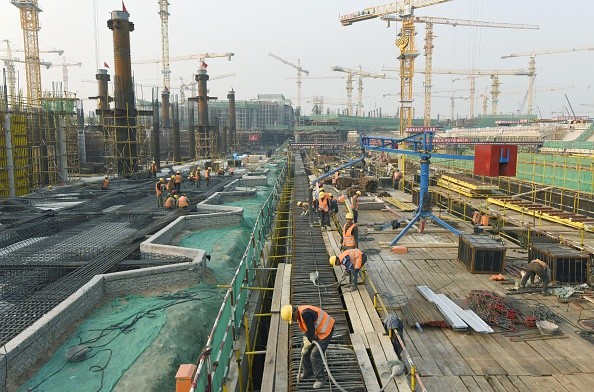Global producers of commodities such as coal, iron and copper are expecting prices of metals to soar if China would buy metals in bulk as miners are looking at a boost in infrastructure spending by China to balance the decline in prices due to slow housing growth.
But despite being a buyer of big commodity, Chinese infrastructure sector is not likely to spend on metals and drive prices of the commodity, contrary to what metal producers and miners believe, an article by The Wall Street Journal said.
According to the article, there are two main reasons why the infrastructure sector is unlikely to spend on metals.
First, infrastructure does not make use of metals as much as offices or homes do.
CRU, a London-based metals consultancy, said that although about 20 percent of fixed-asset investments in China may be attributed to real estate accounts, the demand for steel is only nearly 40 percent.
Only 13 percent to 14 percent of Chinese steel production is used by infrastructure, which account for about a quarter of investment. This means that infrastructure investment must be increased by around 3 percent to offset the 1 percent decline in real estate to replace the lost demand in iron ore.
Since the middle of last year, copper investment has slowed severely despite investment in electric power, the most important type of infrastructure.
The growth in grid investment also dropped by about 5 percent in October and November from 40 percent gains early in the year, driven by higher coal prices in mid-year.
Second, infrastructure funding may also be affected by the recent movement in the local bond market as municipal bonds or the local government financing vehicles (LGFVs) financed most infrastructures in China. LGFVs are often used by cities to avoid restrictions on local loans.
These types of debt were severely affected by the recent sell-off in Chinese government bonds, the report said. The recent problems in the money market could also affect the demand for official municipal bonds.
But munies or municipal bonds are preferred by Chinese banks since they are widely accepted as collateral for transactions in the money market, according to Frances Cheung, head of rates at Société Générale.
The demand for municipal bonds, however, could decrease as money markets are set to take advantage of the U.S. Federal Reserve's rate increase, which could result in higher funding costs for local governments.
It is also expected that Chinese real estate construction may slow down this year, but it would not be as disastrous as the 2014 or 2015 crash in the commodities markets.
The report said that unless the Chinese government provides a more aggressive and direct support to infrastructure sector, investors should not rely on Chinese infrastructure to drive commodities, especially metal prices, higher this year.



























